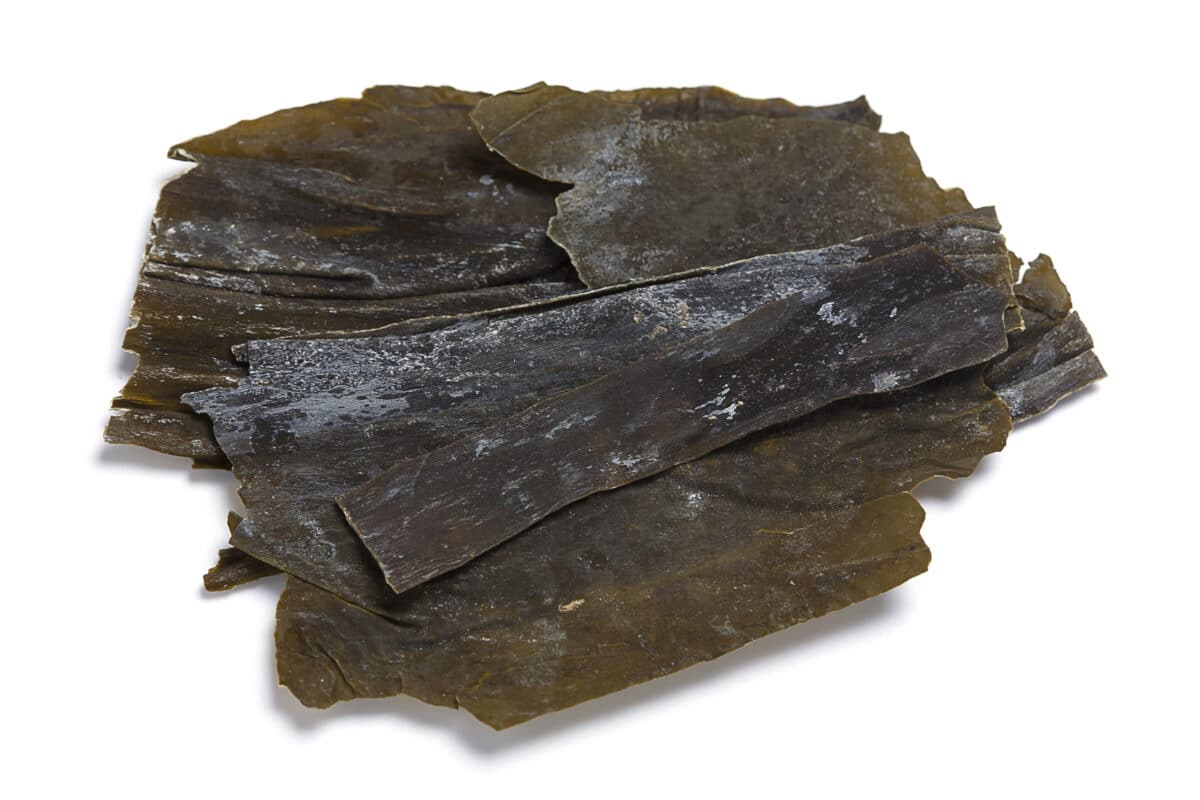Kombu is a type of edible kelp, a seaweed commonly used in East Asian cuisine, particularly in Japan and Korea. It’s a key ingredient in making dashi, a flavorful broth foundational to Japanese cooking. Kombu adds umami, a savory taste, to dishes due to its high content of glutamic acid.
In cooking, kombu is often used in its dried form. It can be simmered in soups and stews to impart a rich, savory flavor. Kombu is also used to prepare sushi rice, as it enhances the flavor of the rice. Additionally, it can be pickled, eaten as a snack, or used as a seasoning.
Visually, kombu is dark green to almost black in color and has a thick, leathery texture. When dried, it comes in long, stiff sheets or strips.
Kombu can be purchased in Asian grocery stores, health food stores, and increasingly in the international section of many supermarkets. It’s also available online. Fresh kombu is less common but can sometimes be found in specialty stores.
It’s an excellent source of various essential nutrients, including iodine, which plays a crucial role in maintaining thyroid health. The presence of calcium, iron, and vitamins A and C further adds to its nutritional profile.
One of the notable features of kombu is its high dietary fiber content. This fiber is beneficial for digestive health, assisting in maintaining a healthy gut. It’s also good for the heart, as it helps in managing blood sugar levels and reducing the risk of heart-related diseases. Moreover, kombu is remarkably low in calories and fat, making it an ideal choice for those looking to manage their weight.
Another interesting aspect of kombu is the presence of a compound called fucoidan. Research has indicated that fucoidan may have anti-inflammatory, anti-tumor, and immune-boosting properties, although more studies are needed to fully understand these effects. Additionally, kombu is rich in antioxidants, which are crucial in protecting the body from oxidative stress and may lower the risk of chronic diseases.
Kombu is also heart-friendly, thanks to its potassium content, which helps in regulating blood pressure. However, it’s important to consume kombu in moderation, especially for individuals who need to monitor their iodine levels, such as those with thyroid conditions, as excessive iodine can lead to thyroid dysfunction. As always, it’s best to consult with a healthcare provider for advice tailored to individual health needs.

